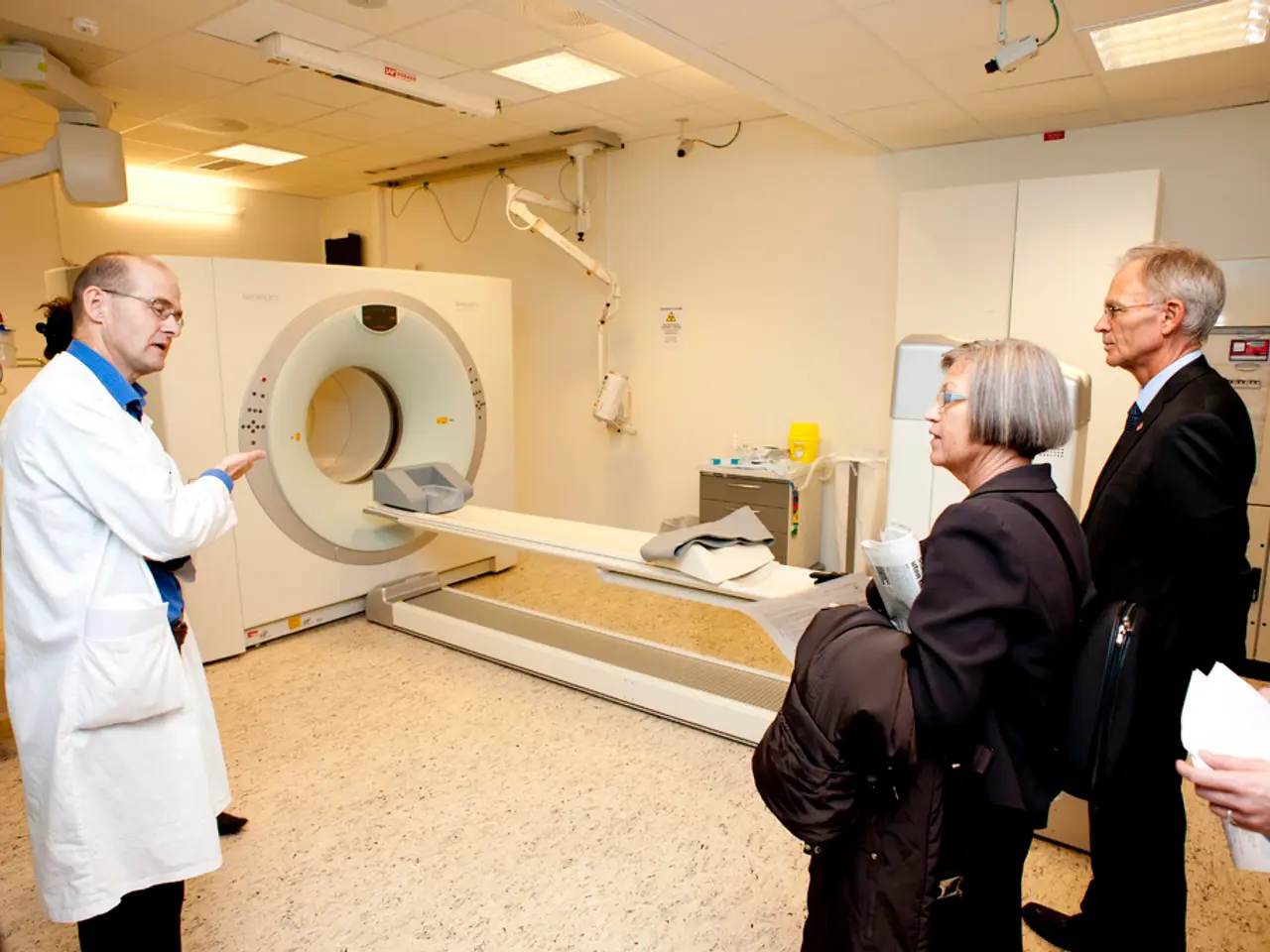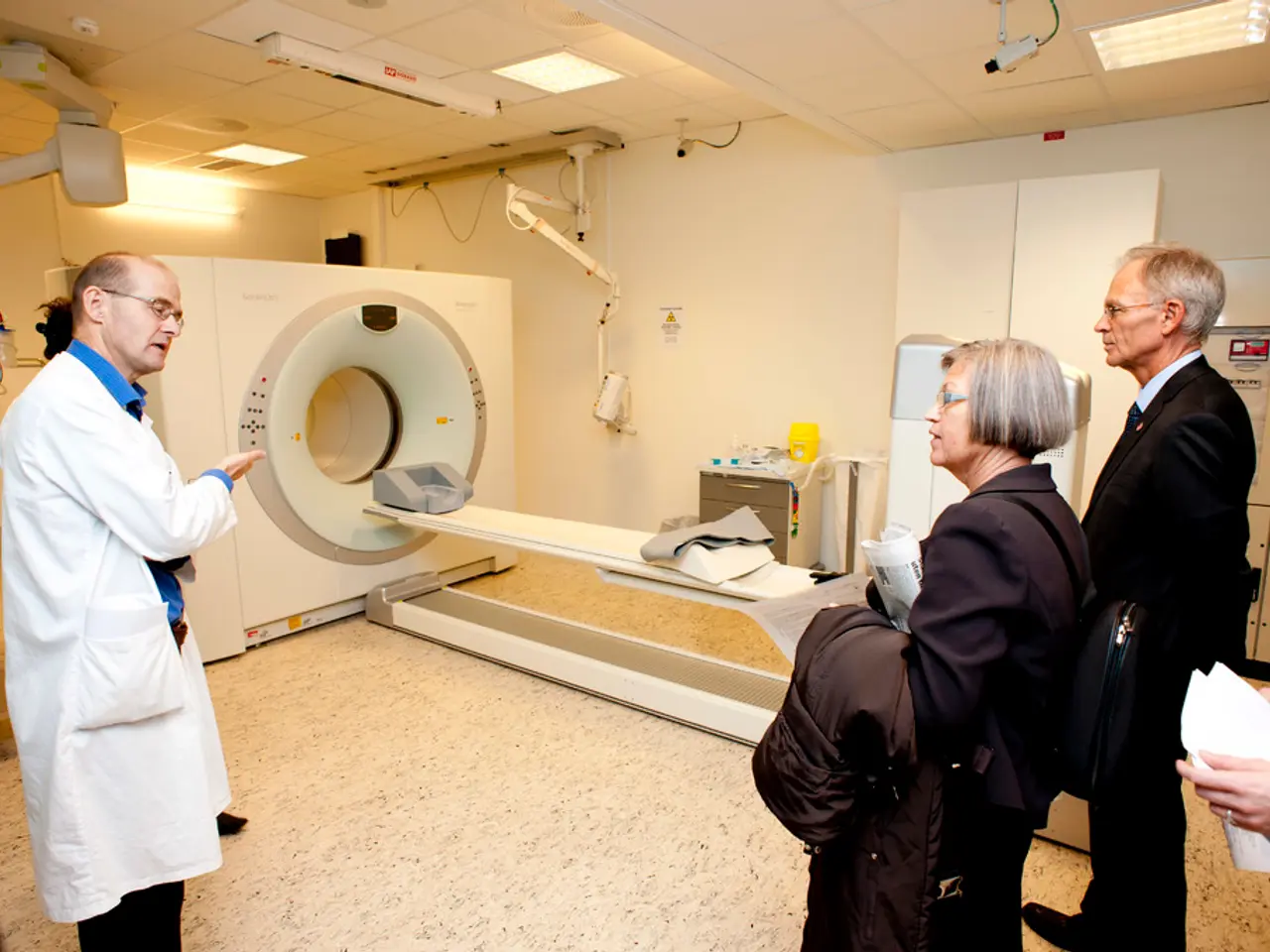Discussion on the Integration of Artificial Intelligence in Medical Services
In the Twelfth District of the United States, which encompasses states along the West Coast and Pacific territories, artificial intelligence (AI) is increasingly being integrated into healthcare organizations[1]. This transformation is led by a diverse range of healthcare providers, including integrated managed care providers, multi-state not-for-profit health systems, regional health plans, and specialty hospitals such as pediatric institutions.
The primary focus of AI adoption in this region is on clinical support and decision-making. AI tools assist healthcare workers by analyzing patient summaries and suggesting possible diagnoses, thereby aiding clinical decision-making and improving productivity for providers[2]. Additionally, AI automates documentation tasks during appointments by capturing and transcribing audio notes for providers, thereby reducing administrative burden and allowing clinicians more time for patient care[2].
While AI adoption remains in relatively early phases, several Twelfth District health institutions are actively exploring or implementing AI for various tasks, including diagnosis support, patient triage advice, and operational improvements. This was a major topic discussed at a recent roundtable convened by the San Francisco Fed that gathered leading executives from key district healthcare players[1].
The integration of AI is expected to bring about significant improvements in productivity by streamlining administrative tasks and assisting in clinical workflows[1][2]. For example, automating note-taking and diagnostic suggestions allows healthcare workers to focus on high-value patient interactions.
However, the employment effects of AI are mixed but context-dependent. While AI may replace or change certain repetitive tasks, many healthcare leaders emphasize that AI will augment rather than displace healthcare workers, enabling higher-quality care and potentially new roles focused on technology oversight and patient engagement[1]. The integration is motivated more by support and efficiency gains than job cuts.
In clinical applications, AI adoption tends to proceed cautiously due to the stakes involved, requiring evidence that AI-driven decisions improve outcomes without compromising safety[2]. This cautious approach is essential to ensure that AI complements rather than replaces human judgment in sensitive medical contexts.
The Twelfth District healthcare organizations are at the forefront of investigating and piloting AI technologies with optimism for enhanced productivity and improved patient care. They continue to address challenges like data privacy, integration at scale, and ensuring AI complements human judgment[1].
AI is also being used to boost medical professional work quality and satisfaction, as well as to bring together and process information from existing, disparate databases. Administration and operations are seeing the greatest efficiency gains from AI[1].
Balancing the benefits of AI-enabled innovation with potential data security risks is a concern. To address this, a full task force is focused on governance of diagnostic models to ensure accuracy, quality, and data protection, and to monitor for algorithmic bias[1].
The San Francisco Fed and the Federal Reserve System Innovation Office launched the EmergingTech Economic Research Network (EERN) in 2024 to understand how new technologies like GenAI are shaping today's and future economies[1].
This summary is drawn from a recent multidisciplinary roundtable discussion organized by the San Francisco Fed in 2025 and contemporary analyses of AI healthcare use cases[1][2].
References: - Integration and impacts discussed at 2025 roundtable convened by SF Fed with district healthcare executives[1]. - Current AI use cases in healthcare including clinical decision support and administrative automation[2]. - Security processes, bias reduction, and quality assurance programs are key requirements for AI applications. - The EERN initiative aims to understand how new technologies like GenAI are shaping today's and future economies.
Artificial Intelligence (AI) not only improvement in healthcare organizations in the Twelfth District of the United States is anticipated, but it is also being utilized to enhance medical-conditions diagnosis and treatment, as well as Health-and-wellness in general. Science and technology collaborate to build AI technologies that analyze patient summaries and propose possible diagnoses, assisting clinical decision-making and productivity for providers. AI is also automating documentation tasks during appointments, minimizing administrative burden and allowing clinicians more time for patient care. Economic research, including the San Francisco Fed's EmergingTech Economic Research Network (EERN), aims to understand how AI, along with other emerging technologies like GenAI, are shaping today's and future economies. The concerns over balancing the benefits of AI-enabled innovation with potential data security risks are being addressed with dedicated task forces, focusing on governance of diagnostic models to ensure accuracy, quality, and data protection.




